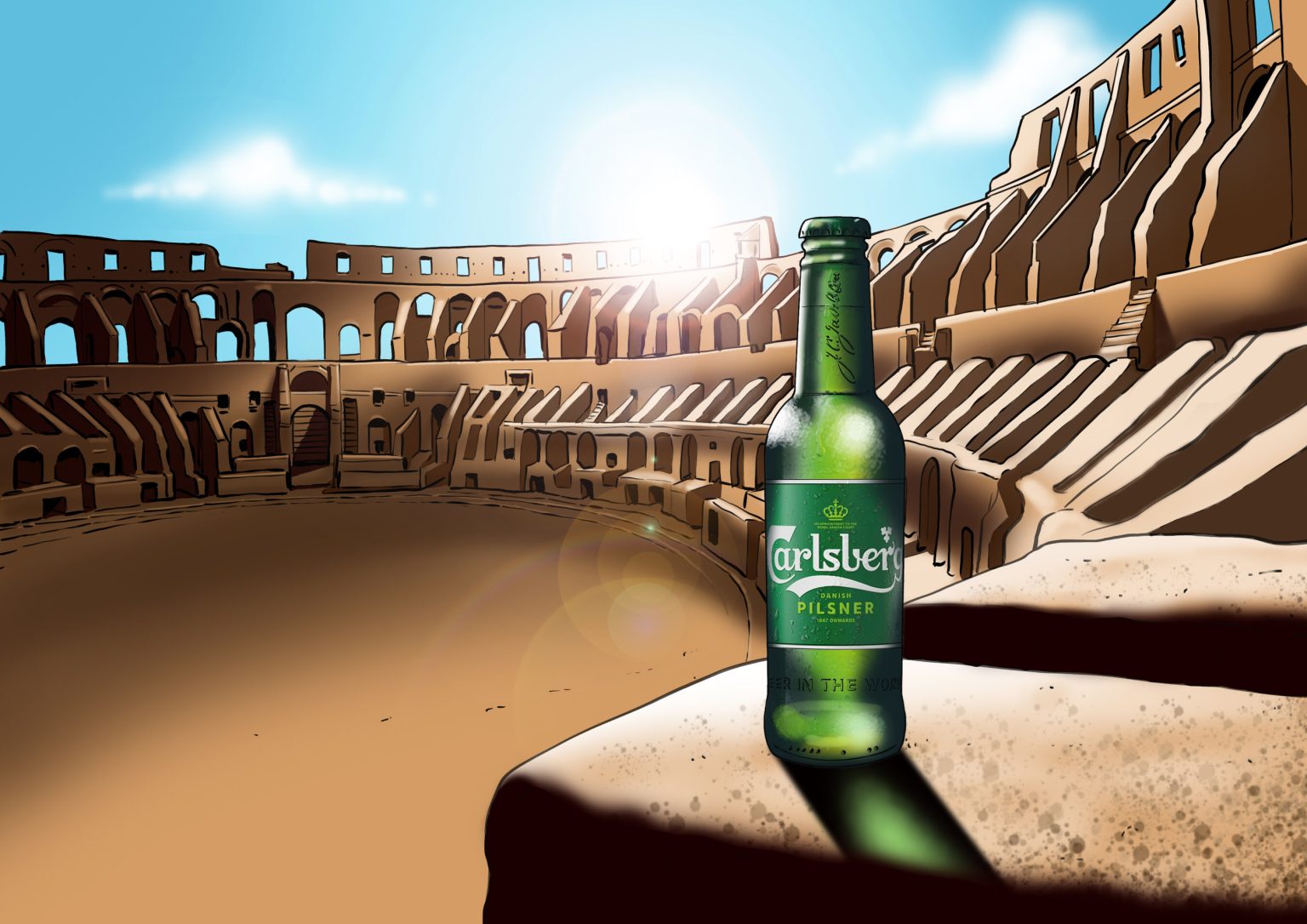New research from the Carlsberg Research Laboratory suggests that Romans, long depicted as avid wine drinkers, may have in fact been enthusiastic beer brewers, especially among soldiers and gladiators. According to Zoran Gojkovic, Director of Brewing Science, Yeast and Fermentation at Carlsberg, ancient brewing techniques reveal beer was a staple in Roman life, with soldiers reportedly receiving beer as part of their rations.
While popular culture often associates the Romans with wine, recent findings indicate that the army, and perhaps even gladiators, may have relied more on beer for their daily refreshment. Carlsberg’s findings, based on techniques thought to have been adapted from ancient Egyptian brewing, provide a fresh perspective on Roman drinking habits.
Brewing Technique Linked to Ancient Egypt
Gojkovic explained that the Romans likely borrowed techniques from the Egyptians, who were known for their advanced brewing practices. Egyptian brewers used dates to kickstart fermentation, resulting in a sweeter, partially fermented drink. The Romans, however, may have used figs as a starter culture, which could have introduced wild yeasts and bacteria, creating unique flavours.
The Romans’ brewing methods also influenced the appearance and strength of the beer. According to Gojkovic, Roman beer would likely have been paler than modern beers due to the malt’s limited exposure to open flame during drying, meaning it lacked the Maillard reaction that produces the rich colours and toasted flavours typical of modern ales. This brewing approach would have yielded a lighter, subtler taste, with the alcohol content likely around 2–3% ABV, similar to today’s session beers.
Flavour Profile: Earthy Notes with Sweet Undertones
The figs used in Roman brewing would have likely introduced complex flavours, from sweet to earthy, with potential hints of vanilla and even tobacco. The ingredients and techniques made the drink distinct from today’s modern brews, providing a lower-alcohol option with subtle, unique flavours.
Carlsberg’s team suggests that the Romans may have brewed their beer with barley in some regions, but in others, they likely used rye. The use of local grains would have contributed to a variety of flavours and textures across the Roman Empire.
Beer for Soldiers and Gladiators
Gojkovic noted that while wine held a cultural association with celebratory occasions and Roman elite gatherings, beer was often favoured among soldiers and gladiators, who could have been served a more rustic and refreshing drink to unwind after a day of combat or training. This new understanding shifts our perspective on Roman life, adding another layer to the historical narrative of an empire famed for its luxuries and indulgences.
This recent discovery sheds light on the Romans’ taste for beer, hinting at a culture that was perhaps just as enthusiastic about brewing as they were about winemaking. And while Carlsberg notes that the Roman brew may be a far cry from modern tastes, their techniques hint at the empire’s diversity and adaptability, blending Egyptian influence with local resources to create what, for them, was likely the best beer of their time. For further information, visit carlsberggroup.com



